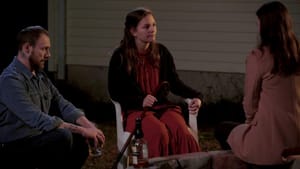Stay in the Loop
BSR publishes on a weekly schedule, with an email newsletter every Wednesday and Thursday morning. There’s no paywall, and subscribing is always free.
Truth outside the bubble
The Wilma presents Will Arbery’s ‘Heroes of the Fourth Turning’

Having seen my first dramatic performance, Eugene Ionesco’s Macbett, at the Wilma Project on Sansom Street in 1987, and having kept up with the theater ever since, I contend that the last 18 months have been the most powerful, fecund, daring, and fully realized stretch of productions in the Wilma’s long history. Its current piece, Heroes of the Fourth Turning, written by Will Arbery and directed by Blanka Zizka, continues to prove this.
Intellect and feeling
Heroes of the Fourth Turning, winner of the 2020 Obie Award for playwriting, serves the audience a dégustation menu of deeply felt emotion and rigorous intellectual examination. The Wilma tackles it as a performance for audiences to stream at home, created and filmed in a “closed quarantine bubble” of the artists at a private location in the Poconos.
The play concerns four graduates of a conservative Christian college in Wyoming who reunite to celebrate the ascension of one of their favorite faculty members to the position of college president. The college features a classically based Great Books curriculum and a decided aversion to the worldly, resulting in a four-year experience where students concentrate on spiritual, intellectual, and physical development. This shared grounding results in characters who discuss the differences between Platonic and Aristotelian theory at the same level of nuance that many of us would bring to debating the comparative merits of Joe Exotic and Carol Baskin. These are most certainly not Hillary Clinton’s “basket of deplorables.”
Risking exposure?
Although the characters do not shy away from demonstrating their intellect, it is to Arbery’s great credit that the text never feels labored or overmuch. While all too freely indulging their tendentiousness, the characters save their moralizing for each other. The play manages to elucidate the intellectual conservative Christian worldview while disabusing us of the idea that these Christian characters are in any way monolithic, showing us their areas of concord well as points of dispute. While they all find liberal ideals problematic (each to a different degree), their beliefs are backed up by thoughtful, reasoned analysis rather than simple emotion.
For example, in one scene, Justin (an introspective, dependable veteran played with quiet yet fearsome intensity by Jered McLenigan) and Kevin (a drunk, self-centered, overly emotional mess played with gusto by Justin Jain) debate the Benedict Option, a belief that those with conservative Christian values should retreat from a world they view as sinful and amoral, and live among those who share their ideals. Justin feels that this is the only way for him to hold on to a knowledge of what is truly good in the world. Kevin is equally fervent about his conviction that you must go straight into the lion’s den and meet ideological opponents with your own truth. “Exposure makes you porous to infection,” Justin responds.
It might be the effect of our virus-laden time, but the concept stuck with me. If I believed that worldliness is an affront to godliness, and that moral relativity leads to immorality, if I truly saw people who lived that way as carriers of a virus meant to eradicate my way of life, I would avoid those people. To Kevin’s point, if I felt my presence in people’s lives would save them from the worst fate imaginable, I would go to them.
A rare privilege
In a cameo as the college president, Gina, Mary Elizabeth Scallen again proves herself a powerhouse, deftly negotiating a character arc that requires her to touch on almost every human emotion, all the while bringing a deeply moral, multilayered, and passionate person to life. Even more impressively, she packs all of this into one scene of less than 15 minutes.
Sarah Gliko gives a strong, assured performance as Teresa, the acid-tongued Bannonite columnist. However, the revelation was Campbell O’Hare as Emily. Even among this consistently excellent cast, she is a standout. All the other characters are defined in some way by what they do, but Emily is defined by what she is: in pain. Kind, empathetic, and a good listener, Emily is the glue of the group. While others rant or explode in fury, Emily is the calm center—until she isn’t. The monologue following is a performer ripping her entrails out and hurling them on the ground. It is a rare privilege to witness such artistic commitment.
Standing by our truth
There are plays that have made me think and others in which I learned something, but rarely do I have an experience that makes me reconsider my relationship to the world. Heroes of the Fourth Turning showed me that although there are people whose worldviews oppose mine, they do not wish me ill. Rather, we all stand righteously behind the belief that our truth is what is best for all. Making those with whom we disagree philosophically into personal enemies allows us to blame them for blocking the path to our totality.
Image description: A still from a filmed performance of Heroes of the Fourth Turning. A man and two women sit outside a house at night, next to a firepit. The man, sitting in profile, has tattoos on this neck and arm, wears a denim shirt, and holds a tumbler of liquor. One woman faces the camera sitting in a chair, and the other has her back to the camera, sitting on the edge of the firepit. The woman facing the camera wears a long, loose red dress, black sweater, and a gold cross necklace. She grasps a cane.
What, When, Where
Heroes of the Fourth Turning. By Will Arbery, directed by Blanka Zizka. Streaming via the Wilma through December 13, 2020. (215) 546-7824 or Wilmatheater.org.
Closed captioning is available, and an audio description of the performance is forthcoming. For questions, call the box office or email [email protected].
Sign up for our newsletter
All of the week's new articles, all in one place. Sign up for the free weekly BSR newsletters, and don't miss a conversation.

 Brad Rothbart
Brad Rothbart